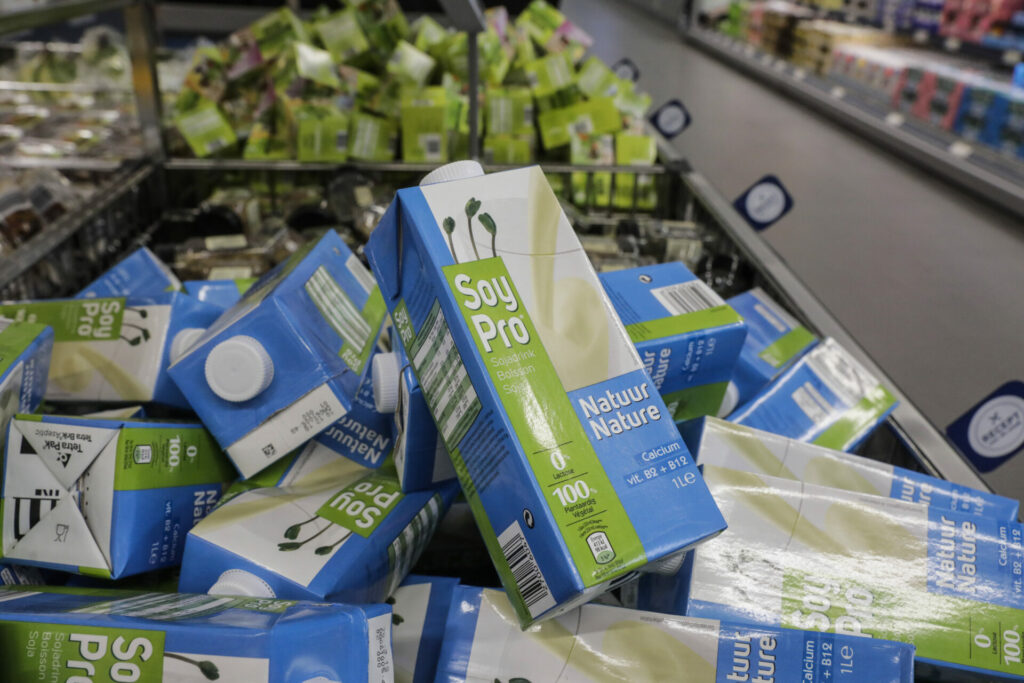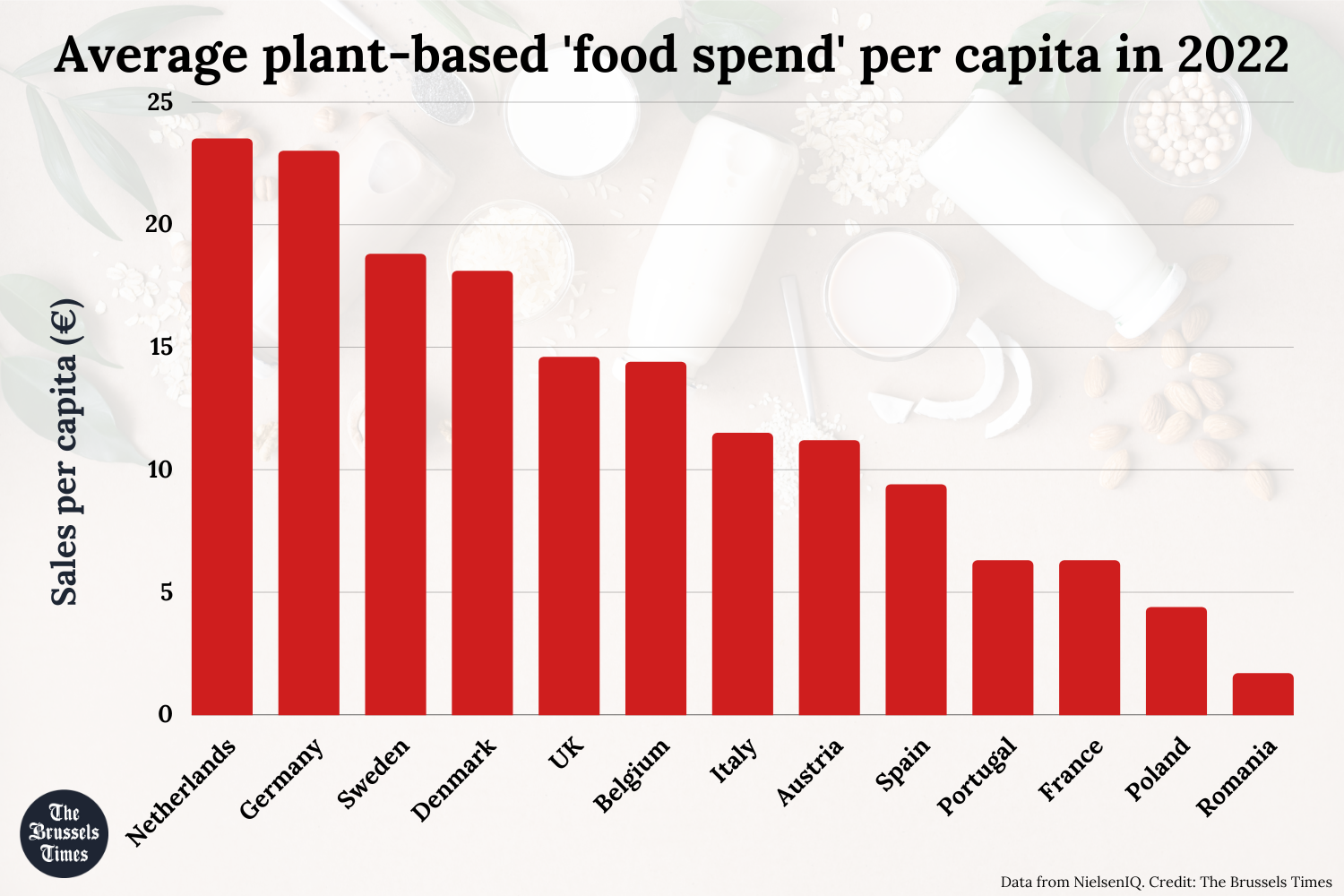Plant-based food sales hit a new record high in 2022, with the market's revenue increasing by one-fifth since 2020. In Belgium, however, this market has remained mostly steady.
Last year, plant-based food set a new record across the content by generating €5.7 billion in revenue – a 22% growth compared to 2020, an analysis by international nonprofit the Good Food Institute Europe (GFI Europe) based on sales in 13 countries found.
“These figures show Europe’s appetite for plant-based foods is continuing to grow," Carlotte Lucas, Senior Corporate Engagement Manager at GFI Europe, said. Milk, meat and cheese are the foods that Europeans swap most for animal-friendly alternatives.
The economic situation in 2022 played a role in this, as many plant-based products were less badly affected by inflation in Europe over the past year.
By December last year, the average price of raw milk paid to producers in the European Union had risen by 40.2% year-on-year while plant-based milk prices rose by only 1% in 2022. Meanwhile, plant-based cheese prices decreased by 3% last year as conventional cheese increased by 12%.
Less milk, more seaweed
Sales of plant-based alternatives to traditional meat or dairy products increased rapidly in Germany, Austria and Denmark. But the Belgian plant-based food retail market remained mostly steady between 2020 and 2022, growing by 0.5% to €163.5 million.
Plant-based milk is Belgium’s most developed category of plant-based products, but sales of these products have declined since 2020, excluding oat milk, of which the sales value increased by 86% over the last two years.
The value of plant-based meat sales continued to increase, growing 4% between 2020 and 2022. In Europe overall, unit sales of plant-based meat grew 21% from 2020 to 2022, while "conventional meat" unit sales decreased by 8% in the same period.
Across Europe, plant-based seafood is one of the least developed categories, but in Belgium it is the fastest growing (+37% since 2020).
Meanwhile, the value of plant-based cheese sales grew 28% between 2021 and 2022, more than three times as much as "conventional cheese," but Belgium still ranks last among the analysed European countries when it comes to plant-based cheese sales value.
Plant-based yoghurt, however, is very popular in Belgium which has the second highest average plant-based yoghurt spend per capita.
More support needed
Lucas stressed that, despite these encouraging figures which show "positive signs of progress" for the plant-based sector, these sustainable options still represent a tiny proportion of the market.
"Research has found that plant-based meat causes up to 98% fewer emissions and uses up to 93% less land and 99% less water than conventional meat," the report read.
GFI Europe argued that it will be "impossible" for governments to meet their Paris Agreement targets without addressing emissions from meat production, and is therefore calling for more public and private investment in research and infrastructure to scale up production and reduce prices.
Related News
- IPCC climate change report: What about sustainable food systems?
- 'Ultra processed': Meat alternatives still do more harm than good
- Supermarkets 'not doing enough' to encourage sustainable diets
“European companies and governments have a critical role to play in supporting consumers to make more sustainable choices," Lucas said."
"Companies must continue investing in product innovation to develop delicious and affordable plant-based options. And governments must invest in the research and infrastructure we need to reduce prices and improve the quality of plant-based options, in order to deliver on their climate targets and enhance food security.”


